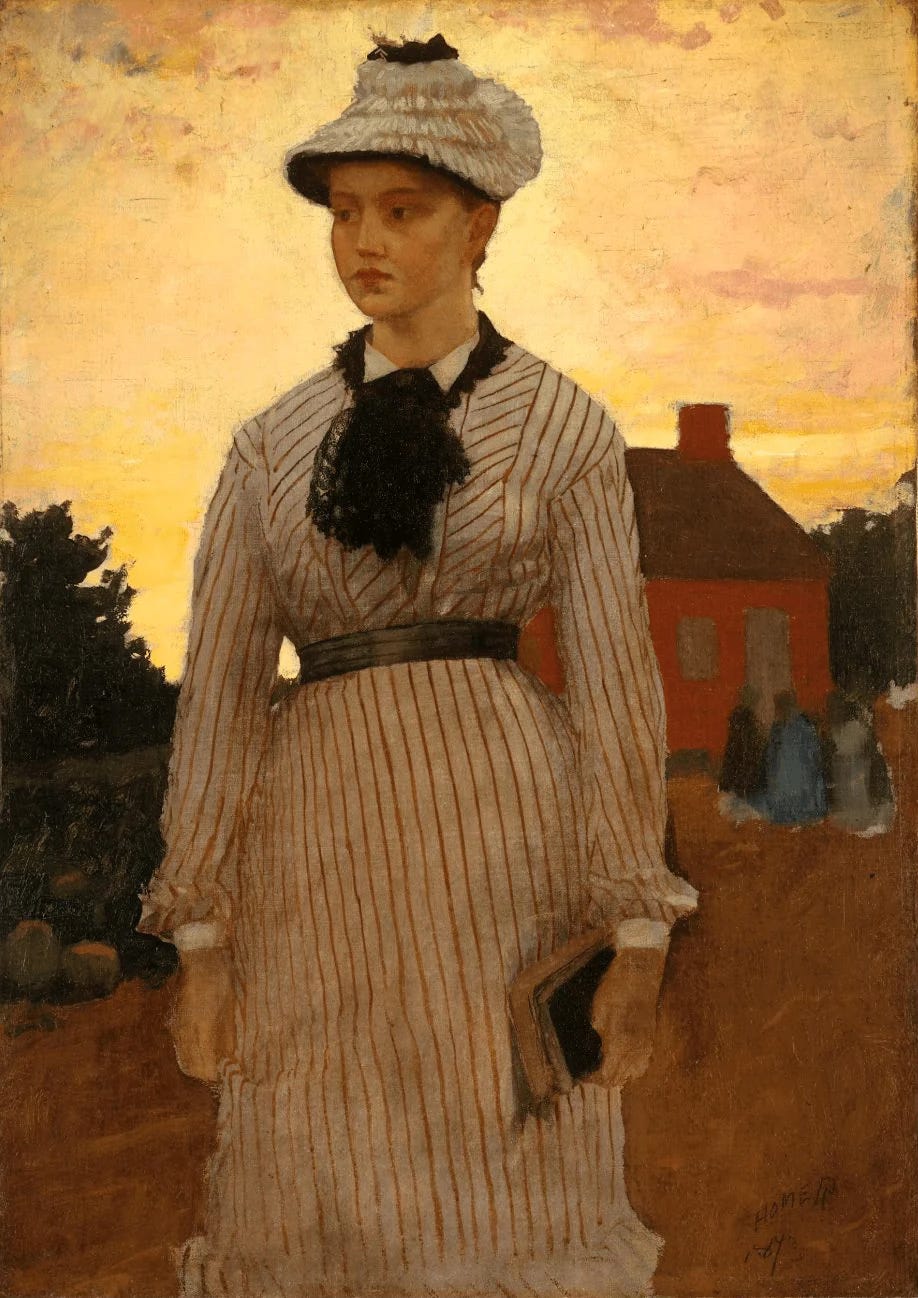Reading Augustine’s Confessions and Austen’s Mansfield Park simultaneously has been very thought-provoking. At first glance, the stories have little in common. One is an autobiography, one a fictional story. One describes the life of a sinner and his many sins, the other, a heroine who never fails or falters. One is a love story between young people, one is the love story between a man and God. But despite the differences, both books tackle similar subjects, including the question of education and its purpose.
In his Confessions, St. Augustine describes how his parents greatly valued his education, and did all in their power to teach him public speaking and literature, and were eager to get him a prestigious career. And yet, looking back, he has little good to say of this. “No one had anything but praise for my father who, despite his slender resources, was ready to provide his son with all that was needed to enable him to travel so far for the purpose of study (…) Yet this same father of mine took no trouble at all to see how I was growing in your sight or whether I was chaste or not. He cared only that I should have a fertile tongue, leaving my heart to bear none of your fruits, my God.” To Augustine, education is good only if it teaches men the Word of God and how to live according to it. Everything else is “so much smoke without a fire.” “What can be more pitiful than an unhappy wretch unaware of his own sorry state, bewailing the fate of Dido, who died for love of Aeneas, yet shedding no tears for himself as he dies for want of loving you?” Augustine asks of God.
This subject is taken up more subtly in Austen’s lesser-read book, Mansfield Park. In it, Fanny Price, one of many children of two poor parents, goes to live with her wealthy Aunt and Uncle Bertram and their four children. Upon her arrival, the two Bertram sisters are shocked at Fanny’s lack of education. “Dear mamma, only think, my cousin cannot put the map of Europe together-- or my cousin cannot tell the principal rivers in Russia- or she never heard of Asia Minor- or she does not know the difference between water-colors and crayons! How strange! Did you ever hear anything so stupid?” And yet, following their long list of facts of which Fanny is ignorant, Austen slips in this little barb: “it is not very wonderful that, with all their promising talents and early information, they should be entirely deficient in the less common acquirements of self-knowledge, generosity, and humility. In everything but disposition they were admirably taught.” Fanny may be lacking a rigorous, prestigious, impressive education, but at Mansfield Park she receives a moral education from her cousin Edmund that soon reveals itself to be much more important.
The world of Mansfield is expanded even more by the arrival of the Crawford siblings a few chapters later. Mary and Henry Crawford are immediately charming and attractive additions to the family circle, and yet for all their wit and talents, they are lacking in their moral education. They make off-color jokes, and ill-considered plans. They have received an impressive education and are delightful to be around, but they have not been taught to value God’s Word or to live by it. When Fanny praises the custom of a nearby manor house of holding morning and evening prayer daily, Mary has countless jokes at the chapel’s expense: “It must do the heads of the family a great deal of good to force all the poor housemaids and footmen to leave business and pleasure and say their prayers here twice a day, while they are inventing excuses themselves for staying away.” Throughout the novel, Mary deconstructs the virtuous actions of others and lightly excuses their vices. Meanwhile Fanny, meek and timid and weak as she is, has been taught by Edmund to love and notice truth, goodness, and beauty, and to strive for them. One question of the novel as it slowly unravels seems to be whether Edmund can extend a similar moral education to Mary, or if her lack of it ends up rubbing off on him, and in the end, which lady is most desirable (both to him and to us).
It seems that Austen and Augustine, despite years and miles of separation, come to the same conclusion on the purpose of education. Despite the acclaim that a good education can give, despite how impressive it may be to list all the Roman Emperors or learn to play the harp, it is a bad education if it encourages you in vice, and does not encourage you to virtue. Augustine writes, “A man who has learnt the traditional rules of pronunciation, or teaches them to others, gives greater scandal if he breaks them by dropping the h from ‘human being’ than if he breaks your rules and hates another human, his fellow man (…) By these means I won praise from the people whose favor I sought, for I thought that the right way to live was to do as they wished.” To Augustine, a normative education towards virtue and God’s Word is the foundation upon which we ought to build all our educational efforts. Not only did Austen agree, she seems to have written an entire novel to show just why it’s so important.





I hadn’t considered this connection, but this will definitely be one of the filters I use while continuing to read these books! Thank you!